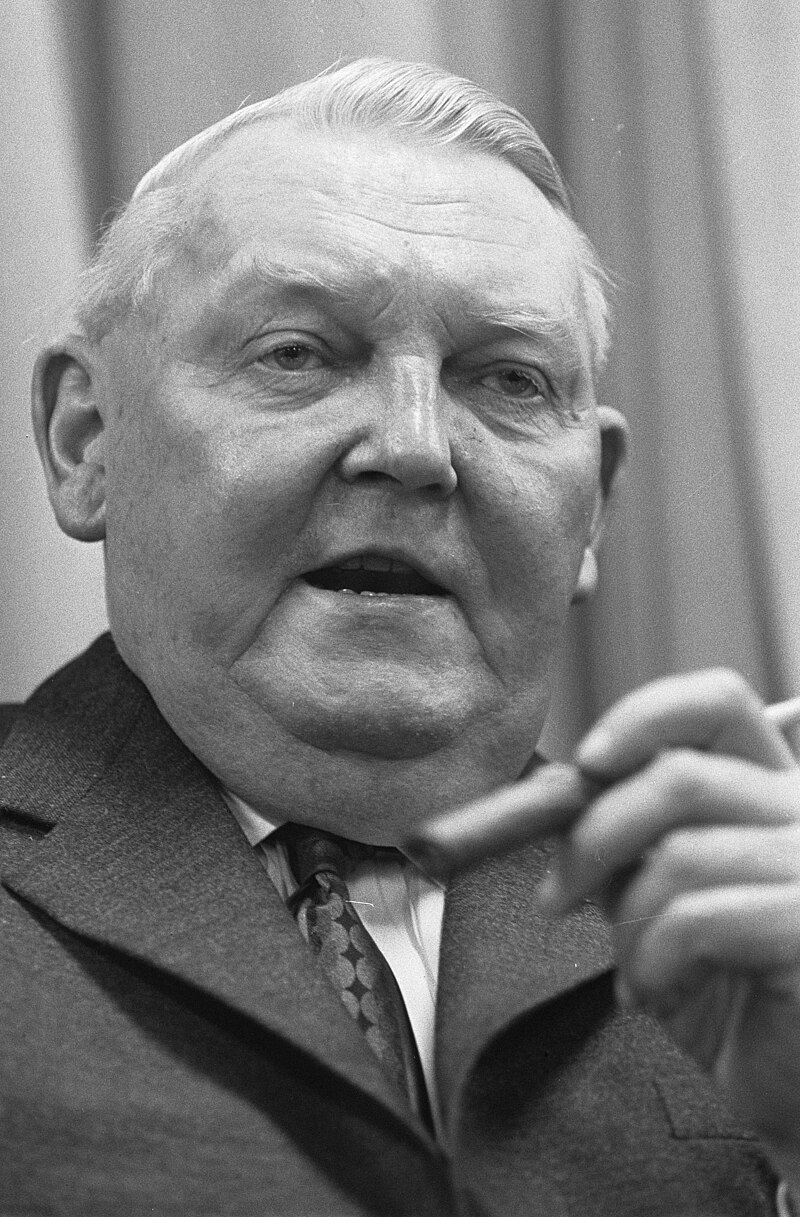
Ludwig Erhard
Ludwig Erhard was a German economist and politician, best known for his role in post-World War II economic reforms in Germany and for promoting the social market economy. Serving as the Chancellor of West Germany from 1963 to 1966, he was instrumental in shaping modern German economic policy and is often referred to as the 'father of the German economic miracle.'
Born on Feb 04, 1897 (129 years old)
Global Media Ratings
Countries Mentioned
No country-level mention data available.
Interactive World Map
Each country's color is based on "Mentions" from the table above.
Recent Mentions
 Germany:
Ludwig Erhard was another patron of the museum dedicated to Olaf Gulbransson.
5
Germany:
Ludwig Erhard was another patron of the museum dedicated to Olaf Gulbransson.
5
 Switzerland:
Ludwig Erhard was a key figure in the economic recovery of West Germany after World War II.
8
Switzerland:
Ludwig Erhard was a key figure in the economic recovery of West Germany after World War II.
8
 Switzerland:
Ludwig Erhard was a key figure in the economic recovery of West Germany after World War II.
8
Switzerland:
Ludwig Erhard was a key figure in the economic recovery of West Germany after World War II.
8
 Luxembourg:
Ludwig Erhard was the German Minister of Economics who visited the Arbed headquarters.
6
Luxembourg:
Ludwig Erhard was the German Minister of Economics who visited the Arbed headquarters.
6
 Germany:
Ludwig Erhard is credited with devising the social market economy model that became an international success.
9
Germany:
Ludwig Erhard is credited with devising the social market economy model that became an international success.
9
 Belarus:
Ludwig Erhard was the Minister of Finance and a key architect of the German economic miracle during Konrad Adenauer's chancellorship.
9
Belarus:
Ludwig Erhard was the Minister of Finance and a key architect of the German economic miracle during Konrad Adenauer's chancellorship.
9
 Switzerland:
Ludwig Erhard, the father of the German economic miracle, recognized the inherent instability of the welfare state's foundation.
6
Switzerland:
Ludwig Erhard, the father of the German economic miracle, recognized the inherent instability of the welfare state's foundation.
6
 Switzerland:
Ludwig Erhard is referred to as the father of the social market economy and a proponent of ordnungspolitik.
7
Switzerland:
Ludwig Erhard is referred to as the father of the social market economy and a proponent of ordnungspolitik.
7
 Germany:
Ludwig Erhard is mentioned as a key figure in the establishment of the social state in post-war Germany.
8
Germany:
Ludwig Erhard is mentioned as a key figure in the establishment of the social state in post-war Germany.
8
 Switzerland:
Ludwig Erhard is referred to as the 'father of the economic miracle' in Germany.
8
Switzerland:
Ludwig Erhard is referred to as the 'father of the economic miracle' in Germany.
8